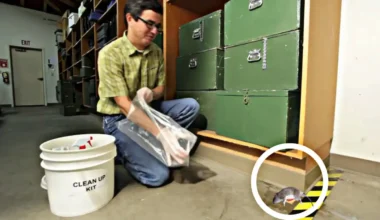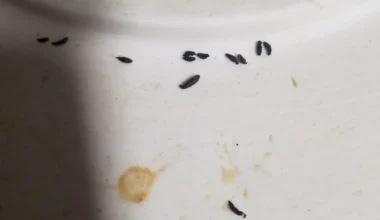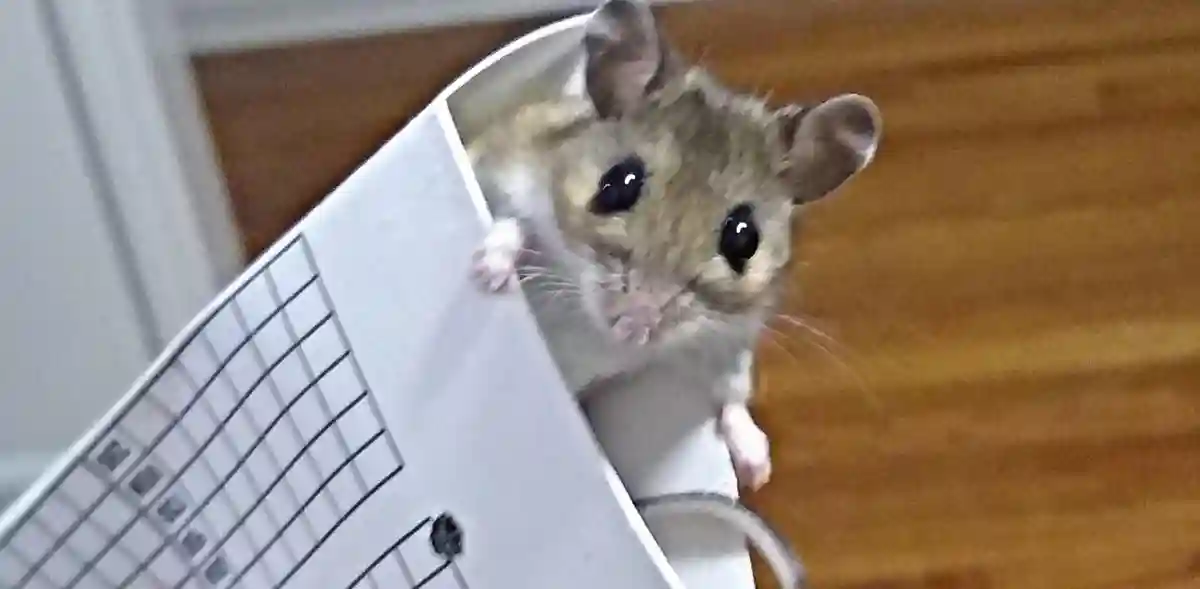I can hear rats in my walls, what do I do? Rats in walls create disturbing sounds and pose a significant problem for homeowners. They can damage your home, contaminate food, and spread disease. Getting rid of them promptly is very necessary to restore sanity and health in your home.
Generally, you need to seek professional pest control help to eliminate the infestation and safeguard your property and well-being. However, it’s okay to have an idea of the problem and attempt to resolve it on your own before bringing in professionals.
What Do Rats in the Walls Sound Like?

| Sound Type | Description |
|---|---|
Scratching or scurrying | Likely the most common sound. These sounds can be quite soft, are more common at night, and involve the sounds of movement within the walls. |
Gnawing | Rats continuously gnaw to keep their teeth from growing too long. You might hear a soft, intermittent gnawing or chewing noise. |
Squeaking or chirping | Rats make a variety of vocalizations, especially when in groups. You might hear these as communication between the animals. |
Thumping or bumping | Caused by rats bumping against the walls or floor while moving around. This sound can be more noticeable due to the size of the rat. |
You may detect the presence of rats in your walls by listening for scratching or gnawing sounds as they move around or chew on wires. Scurrying noises can indicate rats quickly traversing your attic. While mice commonly emit chirps and squeaks, rats typically communicate at frequencies beyond human hearing.
Rats can produce various combinations of squeaks, hisses, and chattering noises, expressing different emotions based on frequency. Hissing sounds often indicate pain or fear in rats.
I Can Hear Rats in My Walls: What It Means
If you’re hearing rats in your walls, this can have significant implications that require immediate attention.
1. Detection of structural flaws
If you hear noises of rats in your walls, this could point to the presence of structural weaknesses or openings in your home due to factors including age-related wear and tear, weather damage, or even flaws from the initial construction process.
Such vulnerabilities in your home’s infrastructure, even if they initially seem minor, can provide access points for pests like rats.
Furthermore, these structural flaws might not only allow pests to invade but could also be indicators of more profound structural problems, such as a weakening of the foundations or compromised insulation, which could lead to more significant issues down the line.
2. Possibility of extensive damage
Rats, with their incessant need to gnaw and chew, can cause substantial damage to various materials in your home – Michigan State University Pesticide Education. They can gnaw on wood, plastic, and some types of metal, potentially damaging the structural elements of your home.
This propensity for destruction also extends to household utilities. For instance, rats can chew through electrical wires, which could lead to power failures or even worse, the risk of electrical fires. They can also damage water pipes, which could result in leaks or flooding, leading to further damage.
3. Health hazards
A rat infestation isn’t merely an inconvenience or a potential source of property damage, it’s also a significant health concern. Rats are known carriers of multiple diseases, some of which can be severe, like leptospirosis, hantavirus, and even the plague. These diseases can be transmitted directly through bites or indirectly through urine, droppings, or fleas that have bitten an infected rat.
Moreover, the droppings, urine, and dander rats leave behind can also cause allergic reactions or trigger asthma attacks in susceptible individuals.
The health risk posed by rats extends beyond the immediate unpleasantness of an infestation and can have serious consequences, particularly for those with pre-existing health conditions or compromised immune systems.
4. Indication of abundant food and water resources
The presence of rats in your home could suggest that there are accessible food and water sources nearby. Rats, like any creatures, are drawn to places where they can readily find sustenance. This could mean that your food storage practices might not be secure enough, or there are water sources that are readily accessible, such as leaks or open water containers.
5. Proliferation and propagation
The sounds you hear within your walls may be indicative of a thriving rat nest. As rats are prolific breeders, this could mean an impending explosion in the rat population within your home if left unchecked.
An escalating rat problem can compound all the previously mentioned issues, from damage to health concerns, at an exponential rate.
At What Time Are You Hearing the Rat Noises?
Rats are primarily active during the night, so if you hear noises during the day, it is unlikely to be rats. Another pest, such as a squirrel, could be hiding in your walls instead. While there are similarities between having a squirrel and rats in your walls, there are specific differences. Squirrels tend to inhabit homes and seek food outside, whereas rats may use your home for both shelter and a food source.
In What Location Are You Hearing the Noises?
If you hear noises emanating from a low point within a wall, it could indicate a potential infestation of mice or rats. Differentiating between the two can be challenging as rats can be surprisingly quiet, while mice can be louder than expected.
Signs of Rats in Your Walls
What telltale signs suggest the presence of rats in your walls?
- Squeaking or scuttling noises in walls.
- Footsteps or light running sounds, particularly at night within walls.
- Presence of droppings in locations such as behind stoves, in basements or attics, or on the ground.
- Rat-gnawed food packages, containers, or wooden spoons.
How Do Rats Enter into Walls
Ratcanto enter our properties through the drainage system, utilizing their flexibility to squeeze through narrow spaces. Being skilled climbers, they can easily navigate through plumbing systems.
Drains serve as an ideal habitat for rats due to the readily available food and water found in the waste we dispose of daily. To prevent these bothersome pests from infiltrating your building, it is essential to take proactive measures.
When identifying their entry points, look for signs such as deformed, cracked, twisted, or bent pipes, gaps near gutters and drains in your brickwork, or sounds of scraping and scuttling within sewers and walls. If you struggle to locate access points, seek assistance from a professional pest control company.
Removing Rats from Your Home
Rapid breeding rates in rats make infestations difficult to control, causing considerable inconvenience. However, you can minimize the hassle by implementing preventive measures, which encompass the following:
- Install wide weather stripping on the bottoms of doors or ensure doors have a complete seal.
- Thoroughly examine the exterior of your residence in London, identifying and sealing or blocking any openings and gaps larger than one-fourth of an inch.
- Store food in containers with airtight seals.
- Ensure both indoor and outdoor trash cans are tightly sealed, keeping the lids closed at all times.
If you can hear rats in your walls. Trust an expert pest control to remove them effectively from your home. They can also inspect your home for free to identify entry points and the rat species involved, helping you prevent future rat presence in your walls.
Read also: Does renters insurance cover rat damage in storage units?





